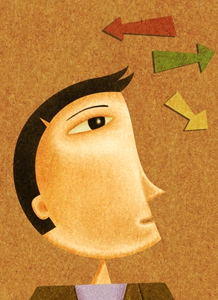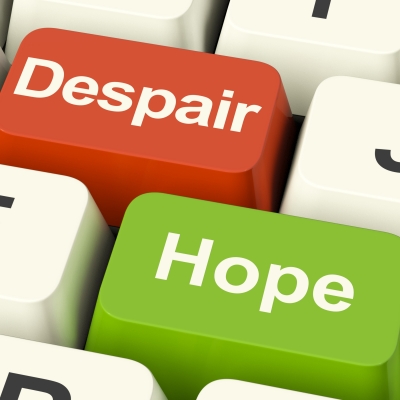Social anxiety disorder or Social Phobia
 Social anxiety disorder (sometimes referred to as social phobia) is heightened anxiety or dread of going into social situations such as meeting new people or going to a party or anywhere where there needs to be an interaction between people.
Social anxiety disorder (sometimes referred to as social phobia) is heightened anxiety or dread of going into social situations such as meeting new people or going to a party or anywhere where there needs to be an interaction between people.
This is much more than just shyness as most people will feel a little anxious meeting new people or going into a social situation, however, this fear and dread is often so high, that the social phobic will often avoid the situation in order to escape the event. This fear is very much fuelled by a deep dread of doing something foolish, or losing control where they may be negatively judged or made to feel embarrassed.
You can learn to manage and overcome the symptoms of social anxiety by going to psychotherapy or using other forms of therapeutic intervention. So it is important to realise that you don’t have to suffer alone.
What are the symptoms of social anxiety?
Like most phobic responses, social phobia affects the way you think, the way you feel and the way you behave. Lets look firstly at the way it affects;
The way you feel and behave.
- Dread and worry about meeting new people
- A deep concern about being negatively judged
- Fear of making a fool of yourself
- Worry about other people noticing that you look really nervous
- It begins to have an impact on the way you live, affecting work or school
- Starting to avoid situations where you feel you may humiliate yourself
- Can’ t seem to make eye contact
- Problems in communication such as not saying anything or tripping over your words
Physiology symptoms of social anxiety include:
- Facial flushing or blushing
- Clammy hands or sweating more than usual
- Feeling shaky (hands shaking or trembling)
- Heart racing
- Needing to go to the toilet
- Feeling sick
- Trembling voice
- Stress in the muscles
- Feeling confused
Like a lot of other emotional problems, it is made worse by the way that we think. The social phobic may understand that their problem is irrational and out of proportion to the actual situation, however, the constant thought of what may occur is so strong that they can’t seem to latch onto any positives.
Like a lot of other phobias, it may have been an acquired or learned response to social situations as seen in a parent for example.
It may also have a connection to the hormone ‘serotonin’which is secreted in our brains and is responsible for our mood. If we have a reduced amount of  serotonin than we may feel very low and have a lack of motivation, also affecting our ability to rationalise things, or situations.
serotonin than we may feel very low and have a lack of motivation, also affecting our ability to rationalise things, or situations.
Of course, many social phobics, may have experienced a negative event where they were either embarrassed or humiliated. This may have just been a perception of the event and not a true reflection of what actually happened, but it would have been enough of a negative experience that the individual fears making the same mistake. This style of thinking is called ‘generalisation’ where the person thinks that because one negative event occurred that it will occur over and over again.
Actually, this sort of anxiety is one of the most common mental disorders and is often first experienced in your teens, but can occur earlier in childhood.
You are more at risk of developing social anxiety disorder if you:
- Are female. For some reason, females are more likely to develop social anxiety than males.
- Have members of your family with the same condition. A parent for example
- Learn the behaviour. For example, seeing others react in a particualar way at school or seeing someone in an authority psoition react in a phobic way.
- Start a new job where meetings are common. If you start a job as a grown up and suddenly have to face a new situation such as delivering a presentation, you may be more at risk of develpoping the disorder through the fear of the experience.
- Have a condition you feel is obvious to others . Drawing attention to something you are concerned about will make things worse. So if you blush all the time you will focus on what everyone can see. You may have a birth mark or stammer. These concerns are more likely to be driven by your own fears of what other people may think of you, rather than reality.
Treatment of social anxiety
 If you have the symptoms of social anxiety you may fear office meetings where you have to give your opinions or perhaps carrying out a presentation, this is often referred to as a fear of public speaking. I have also worked with actors who have suffered from stage fright. Some people will dread or put off going for jobs that require an interview.
If you have the symptoms of social anxiety you may fear office meetings where you have to give your opinions or perhaps carrying out a presentation, this is often referred to as a fear of public speaking. I have also worked with actors who have suffered from stage fright. Some people will dread or put off going for jobs that require an interview.
My structured therapuetic interventions are disigned individually to help you overcome this problem, to help you to feel more confident in your social sitations by restructuring your thoughts and behaviours. You will be able to relax a more easily, even if the routes to your problems started in childhood.
Help is just a phone call away.
Image courtesy of [Stuart Miles] / FreeDigitalPhotos.net
